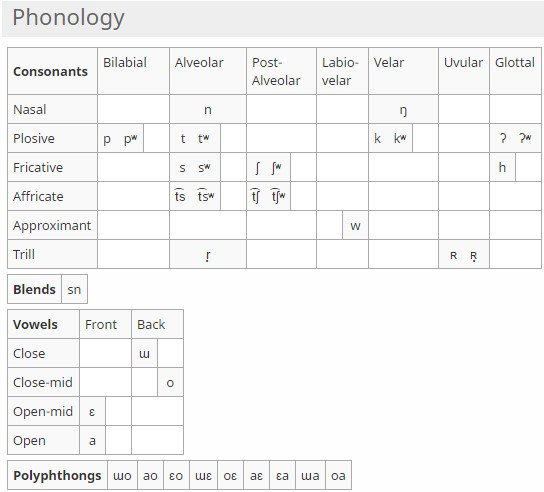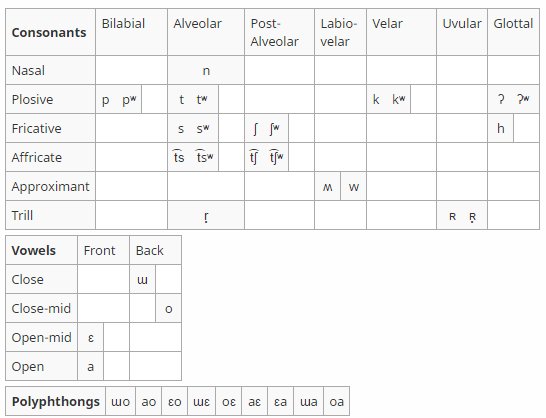Frislander wrote:Several questions. Why is the alveolar trill only voiceless? Why do the velar nasal and glottal fricative not have labialised equivalents? Why is it that the labialised variants of consonants are possible syllable-finally? What's going on with those vowels? Why is /sn/ the only cluster? Are you saying your syllable structure is (C)(C)V(C)?
you seem very... irritated. But nevertheless I will answer your questions:
Why is the alveolar trill only voiceless?: that sound is easier than the voiced alveolar trill. and it sounds cool.
Why do the velar nasal and glottal fricatives not have labialised equivalents?: I don't like /nʷ/ so I won't do that, but I guess I could do /hʷ/ and /ʀ̥ʷ/ and /ʀʷ/ sounds, but I don't like /ŋʷ/ either so I won't do that. Thanks, I'll add a couple of sounds.
Why is it that the labialised variants of consonants are possible syllable-finally?: Because I hate the sound of plosives when they end syllables. The only language I know that does it the way I would like it to happen is korean, because if you say something like, for example, 먹다, which is to eat, you barely pronounce the ㄱ at all, and there's no space or sound in between the ㄱ and the ㄷ, whereas if you were to pronounce an equivalent in english, if you said meog-da, it would be have a space in between it. its really hard to explain what I'm trying to say without examples, but I hope you understand. if you don't, reply back to me and I'll see what I can do. the reason why the labialised ones are allowed is because they have a reason to have something on the end that comes after the plosive itself.
What's going on w/ those vowels?: What the hell are you talking about? I don't understand at all they're just vowels
why is sn the only cluster:? I don't like /hn/ or /ʃn/, and I basically don't like any other clusters. technically you could count all of my labialised equivalents as clusters with /w/ if you wanted to.
Are you saying your syllable structure is (C)(C)V(C)?: Yes.
Any more questions? or can you help answer the one that I gave you?





